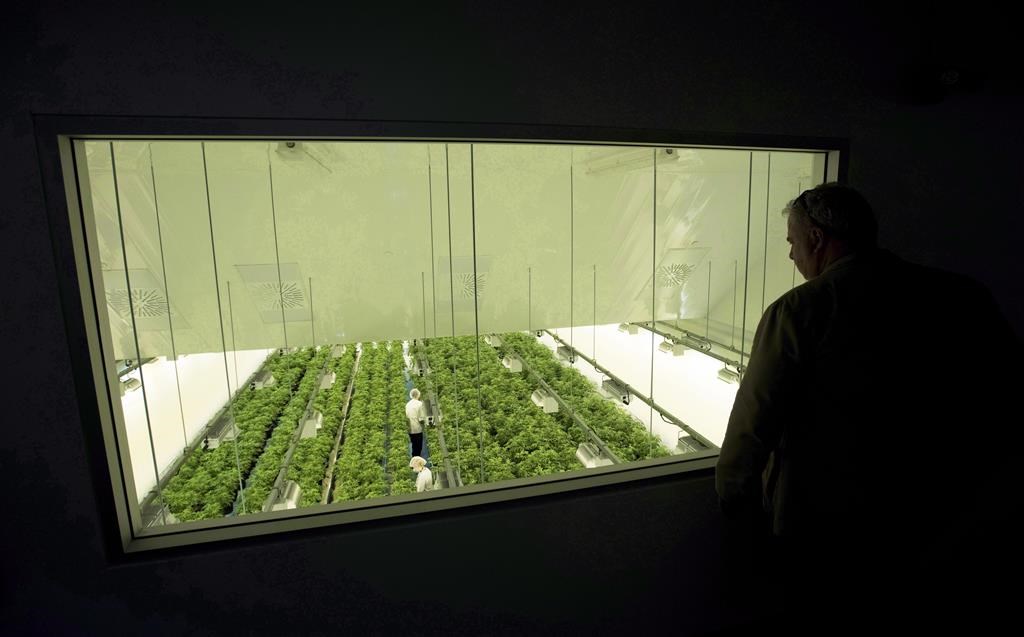The Ontario government’s inability to develop sufficient retail capacity for cannabis products is forcing Canopy Growth Corp. to revise its fourth-quarter guidance as Canada’s market “is simply not living up to expectations,” says the company’s CEO.

“At the risk of oversimplifying, the inability of the Ontario government to license retail stores, right off the bat, has resulted in half of the expected market in Canada simply not existing,” Mark Zekulin said Thursday on a call with analysts.
Zekulin, who announced in August that he intends to leave Canopy after a permanent replacement is found for him and former co-chief executive Bruce Linton, said the company sees enormous global growth potential but faces difficult conditions in its home market because of a lack of retail outlets in its most populous province.
He added that the company, based in Smiths Falls, Ont., is pleased to see Ontario’s recently announced commitment to move towards an open allocation of retail licences where the number of stores will only be limited by market demand.
“This is a big deal but it cannot come soon enough,” Zekulin said.

He also said it’s “increasingly unlikely” Canopy will achieve its target of $250 million in revenue in its fiscal fourth quarter ending in March, about 18 months after Canada allowed non-medical use of some cannabis products, but the company didn’t provide a new Q4 estimate.

Get breaking National news
“While Canopy is geared up with product inventories, production capability and sales efforts to deliver on the $250 million objective, we do not believe at this time there will be sufficient points of retail sales in the near term to unlock the necessary Q4 demand.”
Retail coverage has been problematic in many parts of Canada since cannabis was legalized in October of 2018. Alberta, which has the most successful retail system in the country, has more than 300 licensed private cannabis providers for just 4.37 million people. Ontario, with 14.57 million people or 40 per cent of the nation’s population, has just 24 stores — although the government is in the process of increasing that number to 75.
If Ontario had the same number of stores as Alberta, proportionate to population, there would now be about 1,000.
Canopy shares plunged to $20.15 Thursday — the lowest intraday level since December 2017 — before closing at $20.96, down 14.27 per cent from the day prior.
Net revenue for the second quarter totalled $76.6 million, which was down 15 per cent from the prior quarter and below an average estimate of $107 million compiled by financial markets data firm Refinitiv.
Net loss was $374.6-million or $1.08 per share for the quarter ended Sept. 30 compared with a loss of $330.6 million or $1.52 per share a year ago when Canopy had fewer shares outstanding.

That compared with $23.3 million in the same quarter last year before the legalization of recreational cannabis in Canada, but down from $90.5 million in its first quarter.
Chief financial officer Mike Lee said that gross revenue during the quarter was $118.3 million, before provisions related to its lineup of oils and softgels, which are relatively new to Canada’s legal market.
He said the restructuring expense included $32.7 million in revenue provisions related to adjusted pricing and packaging to focus on a smaller portfolio of products at more competitive prices.
Canopy also took a $15.9-million inventory charge related to the change in strategy which includes new retail pricing, a rationalized package assortment and a focused marketing and educational plan.
In addition, Lee estimated that Ontario needs to open 40 stores every month starting in January for Canopy’s supply of dried cannabis products to match consumer demand by the middle of 2020.
But neither the CFO or CEO would say that Ontario store-openings will actually happen at that pace but they’ve assessed various scenarios to determine when demand and supply would be balanced.
“(Ontario’s government) indicated they’re going to open more stores. Everybody is pressuring them to open stores. Hopefully they’re listening to calls like this and considering the impact it’s having on our sector,” Zekulin said.
With files from Global News





Comments